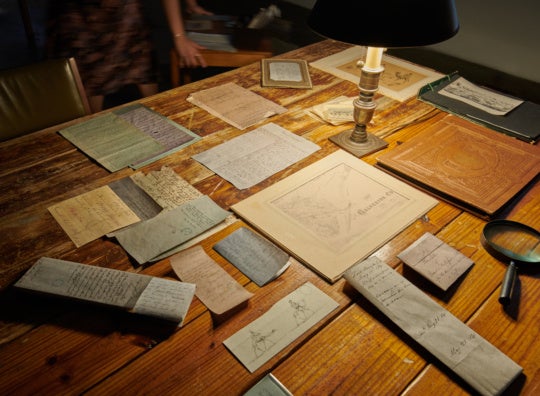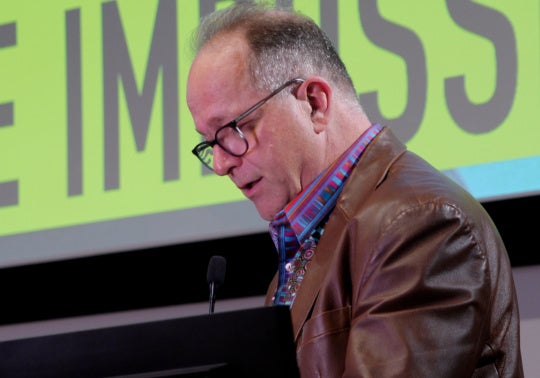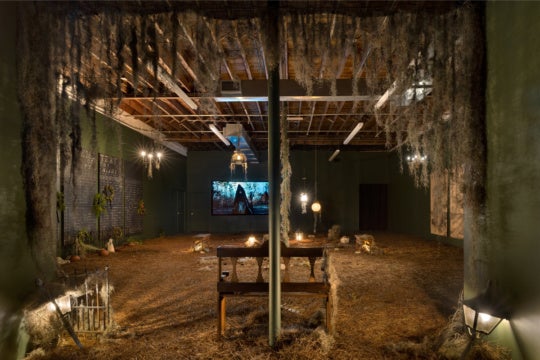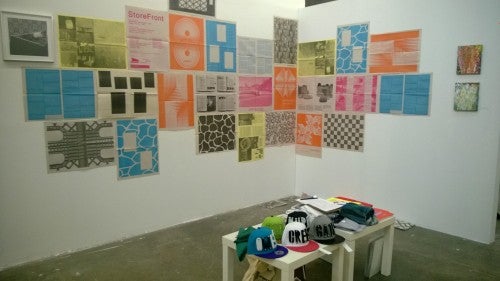
(All photos: Pastiche Lumumba)
The 9/50 Summit was an art fair of sorts, with booths set up by various art spaces, a couple of magazines, and a record label. For a summit of arts presenters, it was a subpar presentation. Overall, with a few exceptions (like Art Papers), the event was rather inchoate. Many of the booths were decorated with photographs and catalogues clipped and tacked to the walls. It seemed like no one really considered the best presentation of their establishment. The summit materials boast a showcase of “rigor, excellence, ambition, and uniqueness,” yet I scarcely recognized any of these qualities. This is not a condemnation of the participating establishments and their programs but rather a criticism of the lack of considered presentation.
What’s worse is that no one else seemed to notice, or if they did notice then no one said anything. No one ever says anything critical. Southern etiquette precludes criticism. The last day’s panel discussion [moderated by BURNAWAY executive director Susannah Darrow] asked the question of whether or not regionalism exists. It does, in that the South still identifies itself as separate from other regions. New York art is simply “art,” but when Simone Leigh has a show in Atlanta she’s “Gone South.” As Southerners, we support the stereotype of regionalism—this is detrimental. There’s a superfluous solidarity in our collective mediocrity and lack of accountability. Perhaps our region is more concerned with preserving the community than advancing the arts. Everyone is too busy socializing to think critically.
There is a perceived conflict between support and criticism. In order for progress to occur, they must be balanced. Too much criticism yields a community of snobs and dejected artists, but blind support creates the stagnant cultural environment that characterizes the Atlanta arts scene. This lack of balance is exemplified in the coverage of Dashboard Co-op’s exhibitions, such as the current “NEXUS, SEXUS, PLEXUS,” and the future use of the buildings they inhabit. We must be able to simultaneously criticize the aesthetic quality of the exhibitions, which lend themselves more to social gathering and selfies than any deep contemplation, while positively acknowledging the very essential role of Dashboard in activating otherwise neglected urban spaces, gentrification notwithstanding.
Will we allow Atlanta to continue talking with the proverbial spinach in her teeth, or do we care enough to say something?
Pastiche Lumumba is an artist, curator, and executive director of the Low Museum.
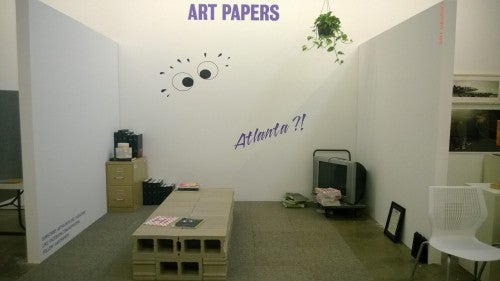
Homepage image: Terry Kearns at Dashboard Co-op’s “NEXUS, SEXUS, PLEXUS.”


